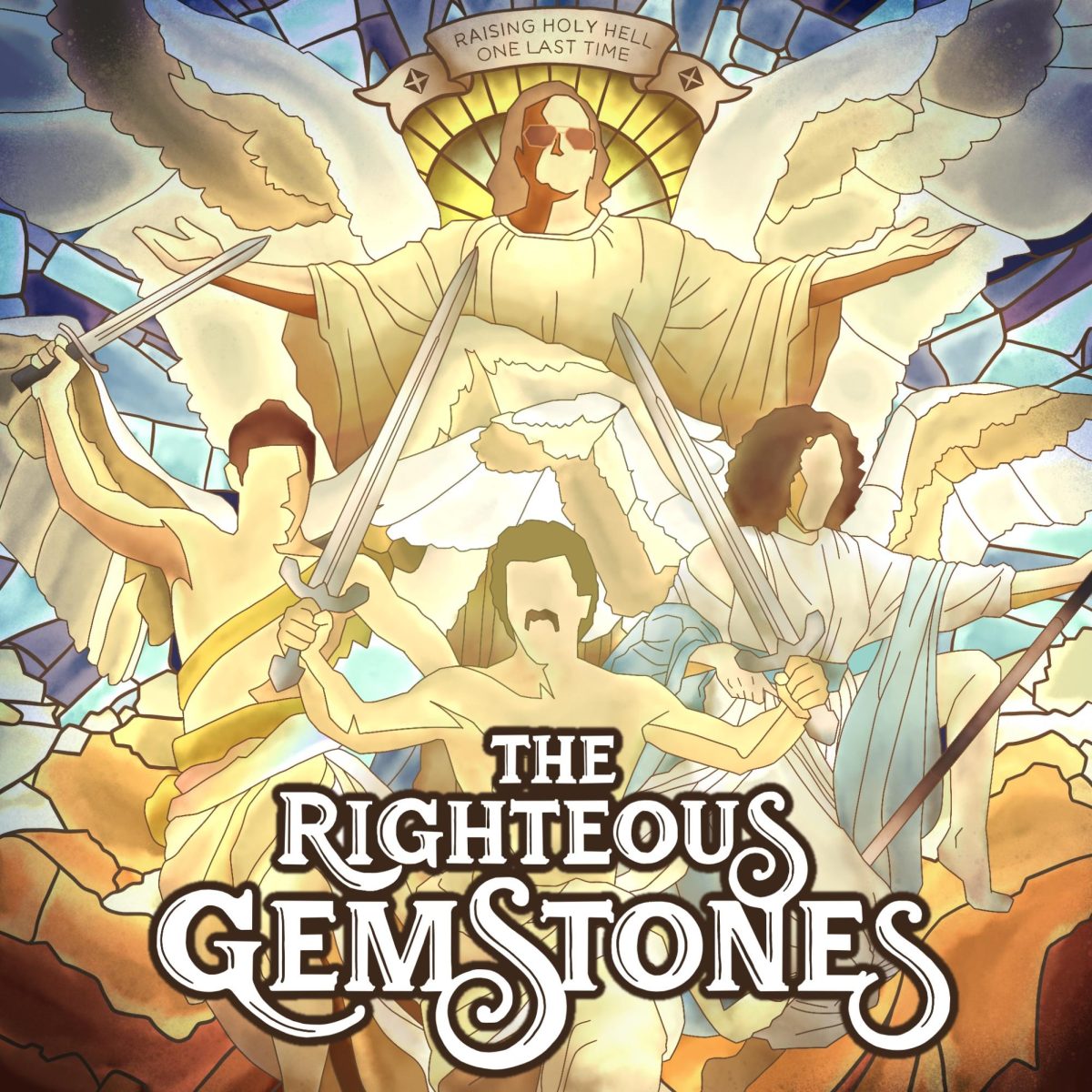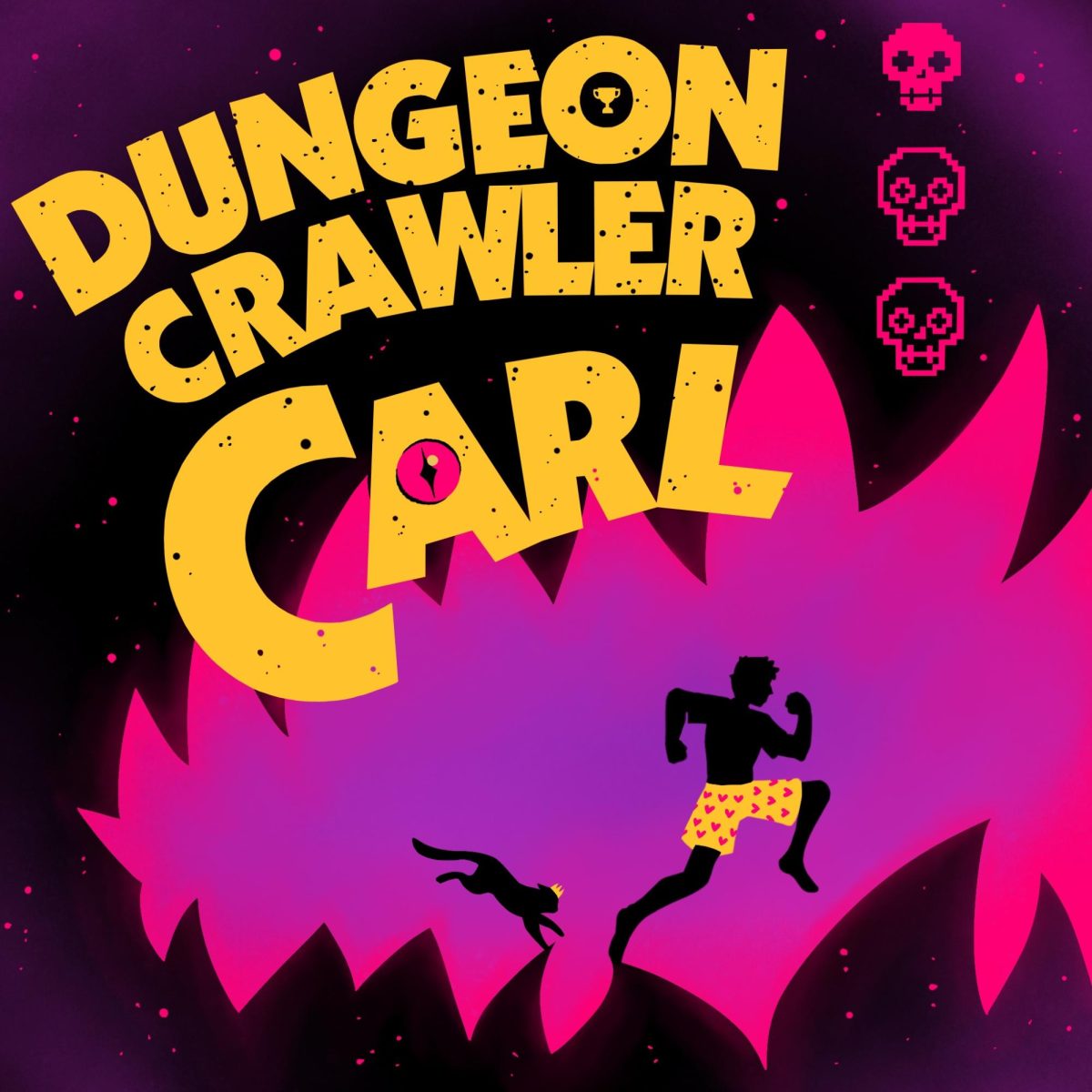Last Friday, Nov. 10, AJR released their fifth studio album, “The Maybe Man”, a raw, exploratory album about coping with loss and growing up. Overall, the album was pretty good; it had some very high points, but some disappointing lows that as a whole served to show a more nuanced, harder side to their music.
The band includes Adam, Jack and Ryan Met, three brothers who produce all of their music in the living room of their New York City apartment. The indie-pop group got their start in 2015 with the release of their debut album “Living Room” and the hit “I’m Ready”.
Their songs are characterized by their use of unusual sounds and many different instruments, as well as samples from friends and family along with tracks by other artists.
Another defining characteristic of AJR’s music is their use of overtures. Two of their previous four albums included an overture, a kind of medley presented at the beginning of the album to hint at the rest of the songs. The idea of an overture hasn’t been lost in “The Maybe Man”, even if shown a bit less explicitly.
The titular song of the album, “Maybe Man”, acts as a kind of table of contents for the rest of the songs on the album, with each verse hinting at a different track. In the song, Jack Met sings, “Wish I was a stone/so I couldn’t feel/you’d yell in my face/ it’d be no big deal.” This corresponds with the second song on the album, “Touchy Feely Fool” where Met says, “I’m better off a stick/I’m better off a stone… I’m better not feeling stress or feeling bliss/I won’t feel much, at least I won’t be feeling this.”
As a long-time fan of the band, I was delighted to hear this as the first impression of the album. The instrumentals start simply in the verses, slowly building up with strings and piano. But the highlight of the track comes at the end- the backing instrumentals back out for a moment of near-silence, until “One, two, pandemonium!”- and all at once the beat drops, the backing instruments coming back in, this time with some signature AJR instrumental samples to close out the song.
“Maybe Man” is also the song that sets the trend for the rest of the album: drastic changes in tempo and key, with an often unclear song structure. This can be seen as a negative for “Maybe Man”, which lacks a discernible melody and strays away from the usual pop structure of verse, pre-chorus, and chorus.
However, I don’t take it as such. The stray from the typical pop structure is a good look for the band as a whole, which is often criticized for only making music for the money. A song without a clear, earworm-inducing melody makes it harder to go viral on social media platforms such as TikTok or Instagram. This shift in structure demonstrates how AJR isn’t just interested in creating songs for the sole purpose of blowing up online and then reaping the rewards; they genuinely enjoy what they do and like creating songs that are unconventional and fun, but also meaningful.
The album’s tone takes a sharp turn from their previous works while being written about similar topics. Previous albums like “Ok Orchestra” and “Neotheater” talk about the band’s troubles growing up, themes which are present in “The Maybe Man”. However, the main difference comes in the delivery of these messages.
“The Maybe Man” veers off the road of their previous “growing up is hard and life is messed up, but it’s okay” mentality and drives straight off the road into a ditch of borderline existential crisis, bluntly conveying similar themes.
No song shows this better than “Steve’s Going to London”, a song about watching the people around you grow up. It explicitly says that it’s “a song that don’t mean anything at all.” The bridge is a fourth-wall-breaking, existential crisis where Met sings, “So stop writing a song about writing a song/you’re losing their attention, buddy, move on.”
This is a direct reflection of the band’s experiences while writing the album. During production, the brothers lost their dad, a very important figure in their lives. Their anger and sadness are reflected through “God is Really Real”, as well as “2085”, the last song on the album, with lyrics such as, “Life’s [really] long ‘til it stops/and God’s [really] fake ‘til he’s not,” (God is Really Real) and, “You gotta get better, you’re all that I’ve got/Don’t take forever, you’re not here for long,” (2085).
Another interesting change in “The Maybe Man” is the addition of an entire clean album releasing alongside the original version. This makes sense because of the high number of explicit songs on the album (only one song is marked clean), but it does show a change in the band’s mentality; trying to make their music available to larger audiences with different preferences.
My favorite song off the album would have to be “Inertia”. It is the most similar to their older, upbeat songs, but it adds even more genre-mashing along with the clearly conveyed message of feeling “stuck” in life. “Inertia” manages to meld pop, R&B, and alternative music, all while adding in a motif that sounds like it just came out of a holiday song. The result: one unique sound that works surprisingly well.
There were some fallbacks, however. In the album, AJR released “Turning Out Pt. iii”, the finale of a trilogy of songs about Jack’s struggles to find love. The first two parts embody pop ballads, with a slow piano and an emotional chorus. While “Turning Out Pt. iii” shares some similarities with the previous parts, it just didn’t live up to my expectations. Instead of the very emotional, powerful chorus I’d expected, “Turning Out Pt. iii” was more toned down, almost apathetic; something that fits with the tone of the album but is ultimately disappointing for a song that’s meant to be the finale to a grand, personal love story.
Another disappointing thing about the album was the lack of new content. While the album itself contains 12 songs, 5 of those were already released as singles to tease what was to come for the album. While 7 new songs aren’t bad at all, it was disappointing to see that such a large portion of the songs weren’t actually new.
Overall, I feel “The Maybe Man” earns a 7/10. It isn’t my favorite AJR’s album, but the band did make certain choices during production that show growth and maturity, as well as preserve the essence of what AJR is: unconventional, bold, and thought-provoking.









